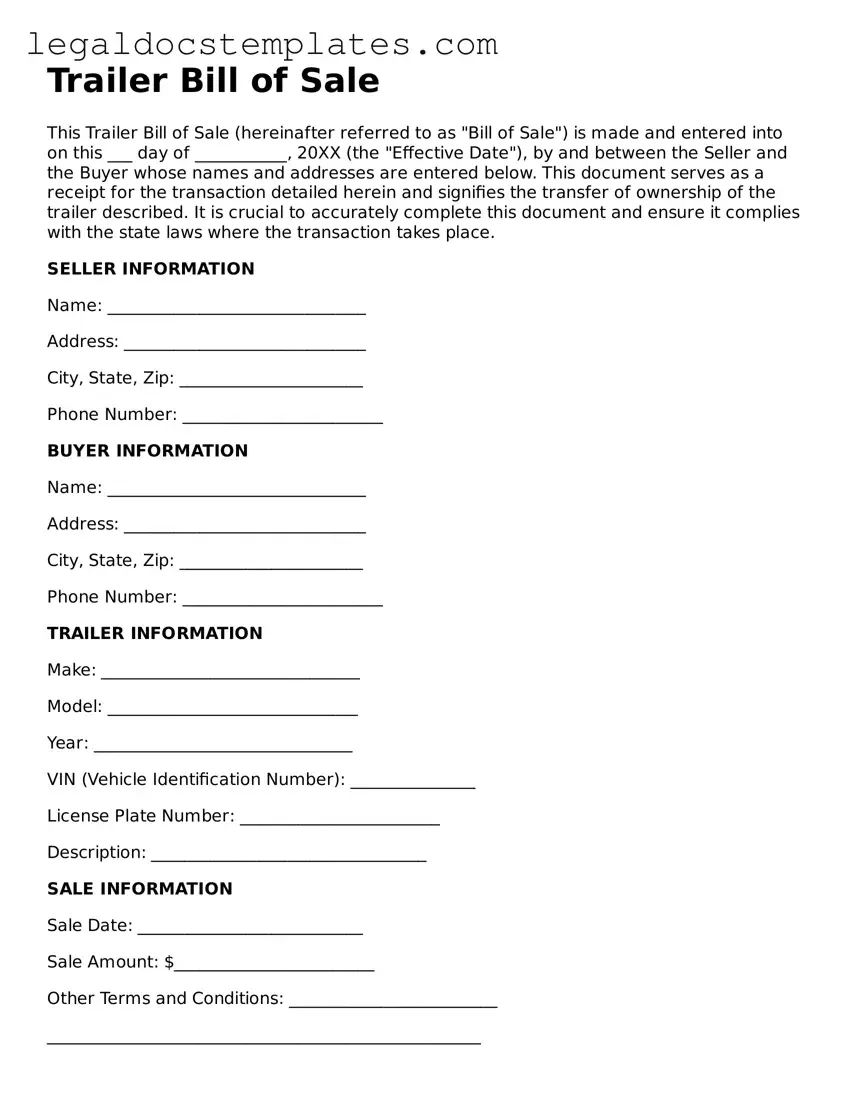Printable Trailer Bill of Sale Template
The Trailer Bill of Sale form serves as a written record that documents the transfer of ownership of a trailer from one party to another. Essential for legal and administrative purposes, this document outlines the details of the transaction, including information about the buyer, seller, and the trailer itself. To ensure a seamless transfer of ownership, interested parties are encouraged to carefully fill out the form by clicking the button below.
Access Trailer Bill of Sale Now

Printable Trailer Bill of Sale Template
Access Trailer Bill of Sale Now

Access Trailer Bill of Sale Now
or
⇩ PDF Form
Don’t spend hours on this form
Complete Trailer Bill of Sale online in minutes, fully digital.